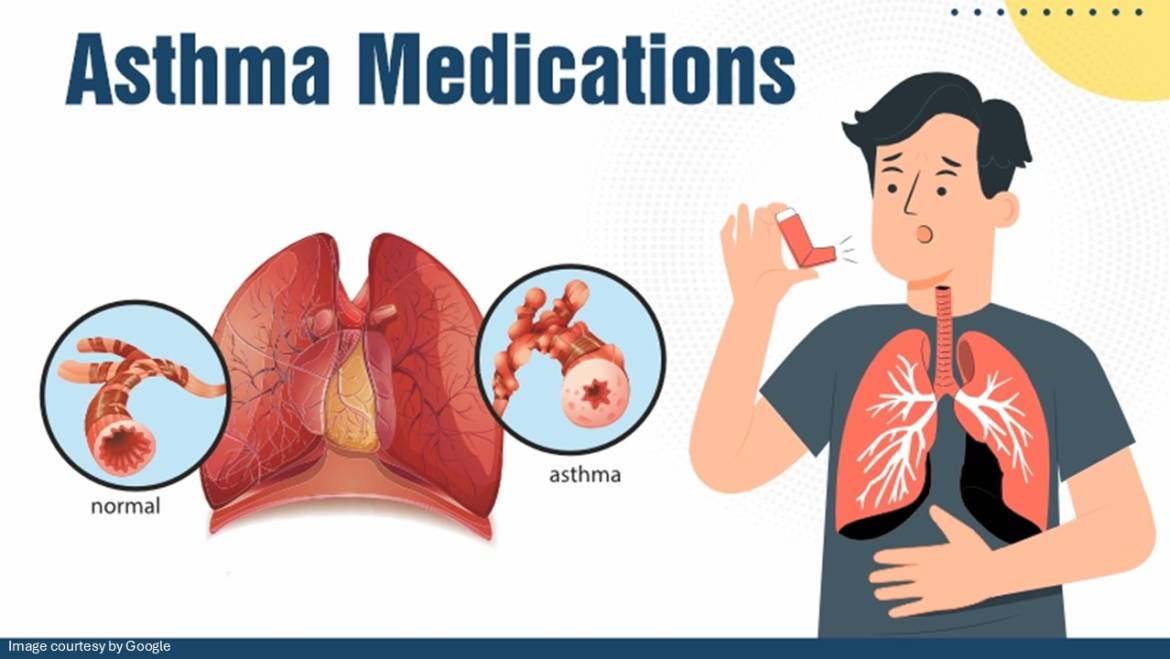The best way to control asthma is by carefully following the prescribed treatments and medicines. There are some excellent asthma medications available that help in full recovery. The main aim of managing asthma is to give you control of your medical condition rather than letting the asthma disease control you. Besides taking your asthma medication regularly, you lessen the symptoms by avoiding triggers that lead to the symptoms.
Specifically talking about asthma, it’s not that people with asthma are trying to dupe their doctor, but the problem is with asthma itself. This medical condition gives a false impression of recovery to the patient, even when they are diagnosed unwell, and that is why the patients are lulled into a false sense of security; in the case of asthma, it is hard to predict, once it is suppressed it will outbreak next. It can be simply hours, days, weeks, or months.
Why do the symptoms of asthma re-emerge?
When asthma attacks a person, the airway lining gets inflamed, and it begins secreting more mucus rapidly by blocking or narrowing the airways, thus making breathing difficult. This disease is triggered by various factors like smoking cigarettes, strong odors, wood smoke, household cleaners, or inhaling certain substances like pollen, mites, or mold. Many people with asthma only see it flare up at certain times of the year. The factors responsible for triggering asthma decide the disease’s severity and persistence. If a person has seasonal asthma and is allergic to the pollens, he will have asthma during the early spring months.
Generally, asthma is categorized as Intermittent Asthma or Chronic Asthma. In Intermittent asthma, symptoms occur less than three times a week.
Intermittent asthma can occur using only a short-acting or “rescue” inhaler when symptoms develop.
Chronic asthma is the underlying inflammation in asthma patients’ lungs. The degree of this inflammation is what determines the severity of your asthma. The best way of treating it is with asthma controller medicines, which are most commonly inhaled steroids. Patients need to take maintenance asthma meds to reduce inflammation between attacks.
Related: 9 Ways to Fight Asthma and Allergies
Effects of skipping medicines during the treatment
Skipping your asthma meds, even when you don’t have any symptoms, could mean more flare-ups and worsened asthma attacks. As with asthma, inflammation is associated with the lungs, which impedes lung function, so it is necessary to control this inflammation through continued use of anti-inflammatory maintenance asthma medications. The corticosteroid group of asthma medications aims to cure asthma, help prevent inflammation, and reduce the chances of an exacerbation. This exacerbation cannot be completely prevented, but the severity risk can be minimized.
Take your steroids and prevent exacerbation: Maintenance Drugs
Few patients will go weeks or months without a problem, even without taking maintenance medications. But doctors can’t always tell which patients fall into this category, so it is recommended to follow your medications religiously. Not taking maintenance medications makes patients more vulnerable. Asthma occurs due to inflammation in the airways, and that inflammation doesn’t go away even if you feel well. That inflammation is always there, and symptoms occur when a certain threshold is reached, which differs for each person. This inflammation can be reduced by taking anti-inflammatory asthma medications. Anti-inflammatory steroids are used to treat asthma. These steroids should not be confused with the steroids taken by the athletes since both classes are different. These steroids help control asthma; they block the inflammation response in the lungs and decrease the inflammation over time. Although steroids can’t stop symptoms once they start, yet they can prevent recurrence. Common steroid asthma medications include Fluticasone, Budesonide, Beclomethasone, Ciclesonide, and Mometasone. Some drugs are sold in combinations.

Skipping medication may trigger hidden asthma
When your kid says that he experiences wheezing in his chest, his chest is aching while breathing, or he was playing with his favorite pet and caught the infection, these symptoms immediately indicate the onset of asthma. Treating and preventing asthma in kids is very important because if left untreated, asthma may periodically become more severe, and parents may perceive that their child is cured, which is not. In kids, if it is not treated, it may complicate things and cause hidden asthma, which means asthma re-emerging over time. Experts say that remission of symptoms may occur during adolescence, but there is no cure for asthma, and the condition will likely reappear in adulthood if neglected in childhood. The symptoms may vanish during childhood but may emerge with unexpected triggers such as a cold, allergy, chemical irritant, or air pollution.
It is usual for parents to skip the medication for asthma
Steroids are life-saving drugs as they prevent the dissemination of the infection to other parts and, hence, reduce the inflammation of the airways. Parents occasionally drop or skip the medicine that comes with steroids because they are scared and wary of the side effects of steroids in their kids. They think that the steroid component in maintenance asthma medications has a disastrous effect on their child’s development; however, it is the most effective drug in the treatment of asthma. Growth suppression issues should not be a reason to avoid steroids. Steroids can be devastating only if swallowed without a doctor’s consultation. When inhaled, it has a direct effect on the target organs. But, there are very severe cases requiring immediate hospitalization, where the doctor has no choice but to put kids on oral corticosteroids, which are relatively stronger than inhaled corticosteroids. However, a few precautions could be taken with the steroid intake, such as gargling a mouth after inhaling, rinsing, and cleaning the asthma inhaler.
Conclusion:
Skipping asthma medication is not advisable and may cause unknown symptoms, which may aggravate the present status of the disease. Asthma is a disease that sometimes turns life-threatening with improper medication. You should always take the medicine as prescribed. If you feel discomfort with asthma medication, speak to your doctor, but don’t skip your medicines.
If you find this article informative, please share it on other social pages. Also, post comments if you have any health questions.
Also Read: Pet Allergens and Asthma



